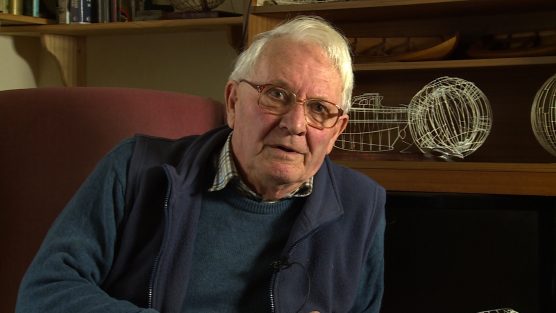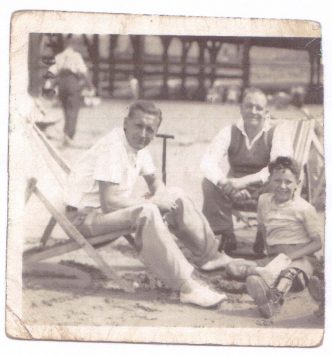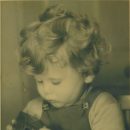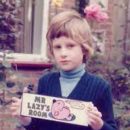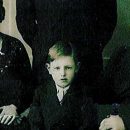Reflections
Ronald Leedham: Shut Away and Tipped Out
Ronald Leedham was born in 1929 in India. His family moved back to England in 1931after Ronald contracted Polio. Ronald spent some years in Hospital as a young child after contracting Diptheria. When he was six he returned home to Catford for a short while to live with his father, eventually ending up living in ‘homes for crippled children’ run by the Shaftesbury Society, until he was sixteen.
More from
Ronald Leedham
- Parlour Songs
- War starts
- Difficult subject
- Mum
- Shame
- Cricket at Sevenoaks
- Incendiaries in the park
- Visiting every six weeks
- The Glow over London
- Lead Soldiers
- Dogfight
- Shelter
- No talking
- Sheltering in the Church
- Geography
- Greyness
- Explosives
- Suitcases
- The Walk to Church on Sunday
- Beatings
- ‘Mummy coming’
- Oliver Twist
- Boys and girls together
- Home
- Oliver Twist and donk
- Certificates
- Buzz Bombs and Doodlebugs
- I Knew Nothing About Life
- Awful Sundays
- A Miserable Time
- Visits
Here Ronald shares his feelings that animals are treated better than disabled children.
https://howwasschool.allfie.org.uk/wp-content/uploads/2013/07/shut-away-tipped-out.mp3
I think, quite honestly, that to take a kid away from a normal life and put them in an institute because they are disabled – to be honest with you, now you wouldn’t do that with an animal. If you found an animal that was injured, you’d nurse it back to health, you’d look after it, and you train it to look after itself before it went out into the wild, wouldn’t you? They do it with chimpanzees when they get a baby chimpanzee, or all these things which have been injured or something like that. They bring it back to life and they gradually introduce it to look after itself in the wild, and then they let it go, don’t they? They don’t just say ‘Oh well you’ve mended your bone now go and fend for yourself.’ But we’ll do that to children.
Transcript
In basic facts it was a cruel way to bring up children. You don’t shut children away until they are sixteen and then tip them out to go and work at the Elephant and Castle the day after. That is cruelty, that child suffers. Not necessarily physically but he definitely suffers mentally and emotionally. I think my marriage suffered because of that. It’s cruelty. Not physical cruelty but it’s even worse to have mental cruelty because it lasts forever. You never forget it, it influences your thoughts, your actions, your personality, your character. It some ways it was good for me but in other ways it’s very bad, and I think to do that – I hope they don’t carry on doing that to kids now. It’s still going on.I think, quite honestly, that to take a kid away from a normal life and put them in an institute because they are disabled – to be honest with you, now you wouldn’t do that with an animal. If you found an animal that was injured, you’d nurse it back to health, you’d look after it, and you train it to look after itself before it went out into the wild, wouldn’t you? They do it with chimpanzees when they get a baby chimpanzee, or all these things which have been injured or something like that. They bring it back to life and they gradually introduce it to look after itself in the wild, and then they let it go, don’t they? They don’t just say ‘Oh well you’ve mended your bone now go and fend for yourself.’ But we’ll do that to children.
Explore more
Explore stories by theme or view the timeline of significant events in education for disabled people
![How Was School? [logo]](https://howwasschool.allfie.org.uk/wp-content/themes/hws-base-theme/assets/img/allfie-logo-original.svg)
